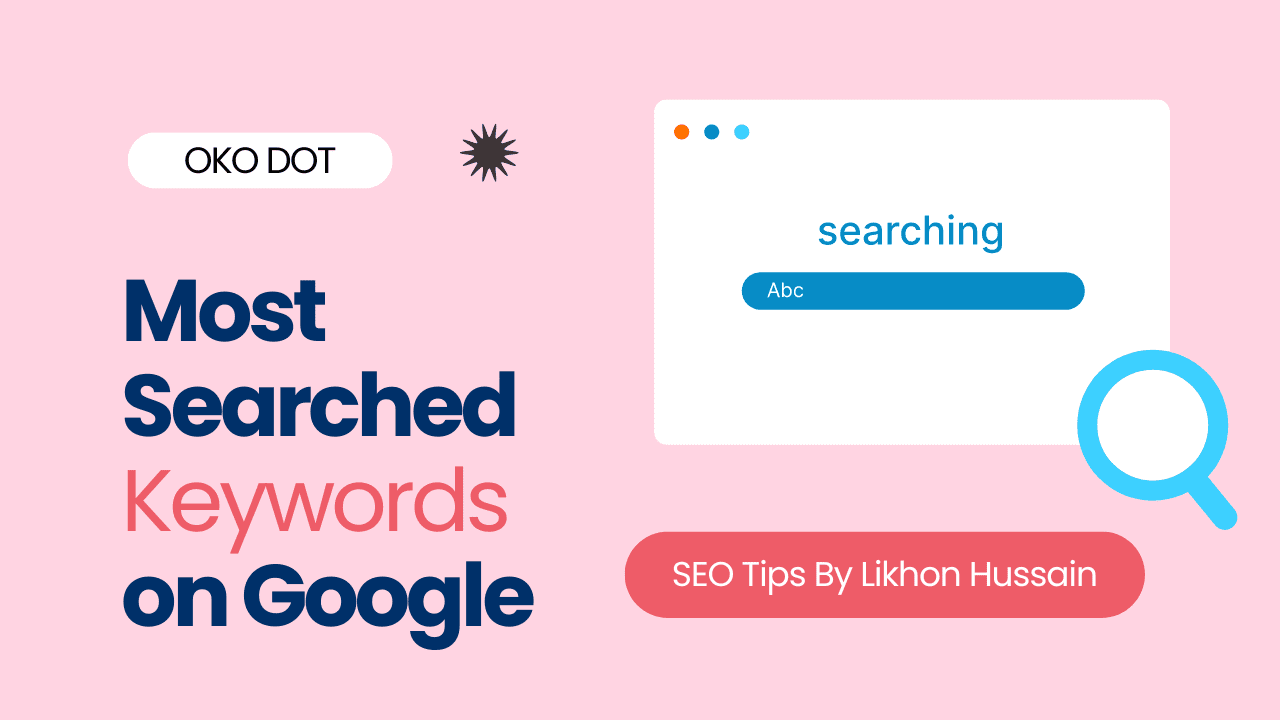You’re probably hearing the hype about ChatGPT 4o, the latest AI that will supposedly revolutionize SEO overnight. Sure, we all want to believe the magical AI unicorn will finally crack the code and catapult our sites to page one of Google.
But before you get too excited, let’s chat about whether this so-called “SEO master” can optimize your site or generate more AI-flavored fluff. We tested it out, with mixed results. This glorified autocomplete bot can crank out keyword-stuffed content at lightning speed, but its ramblings won’t impress Google’s ever-watchful bots.
You still need an actual human SEO strategist to do the real optimization work. So by all means, play around with ChatGPT to spark creative ideas or automate tedious tasks. Just don’t expect it to replace the meticulous, customized effort needed for sustainable SEO success. At least not yet! For now, consider it a quirky AI assistant, not an SEO master.
Can ChatGPT 4o Really Good For Master SEO?
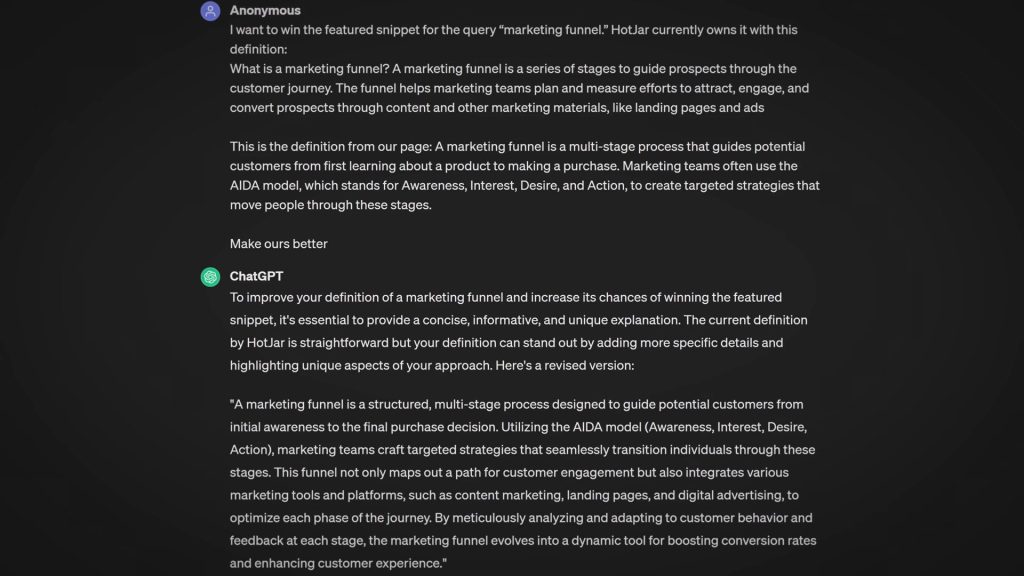
So you’ve heard the hype about ChatGPT 4o, the latest AI writing assistant touted as the savior of content creation. Can this bot really take your SEO to the next level or is it just another flash in the pan?
Read More : How to Optimize Your Website for Bing in 2024: My Secret
The Good
ChatGPT can churn out reams of grammatically correct content at lightning speed. Need 500 product descriptions by tomorrow? ChatGPT’s got you covered. Looking to start a blog but lacking ideas?
ChatGPT will generate a list of topics and outlines to get you going. Short on time for keyword research? ChatGPT can suggest keywords and help you sprinkle them through your content.
The Bad
While ChatGPT may save you time, it’s unlikely to win you any literary awards or rank highly on Google. The content it produces is generic, uninspired, and repetitive – in other words, boring. Google’s algorithms are getting smarter at detecting AI-generated content, so you may end up with a bunch of useless pages that never rank.
The Verdict
ChatGPT makes a decent content assistant but an awful content creator. Use it to help with brainstorming ideas or initial outlines, but always craft the final copy yourself. Throw in personal stories, humor, emotions, and opinions to create content that resonates with readers. Take the keywords ChatGPT suggests but rework them into your own style.
ChatGPT can be part of your SEO strategy but should never replace it. There’s no substitute for understanding your audience, choosing strategic keywords, crafting compelling content, building internal links, earning backlinks, optimizing page speed, and all the other tasks that go into effective SEO.
An AI may be able to replicate some of these functions but it can’t replace the human judgment required to tie it all together into an SEO campaign that gets results.
So use ChatGPT for what it’s good at – helping generate ideas and improve your writing efficiency. But never trust it to fully optimize your site or create the kind of standout content that ranks well in Google and resonates with your audience. There’s no bot for that…yet.
How ChatGPT 4o Can Help With Keyword Research and Optimization
The Not-So-Secret Keywords ChatGPT promises to find those elusive “secret” keywords to rocket your site to the top of Google. But let’s get real—there’s no such thing. The keywords that really matter are the ones your target audience is actually searching for.
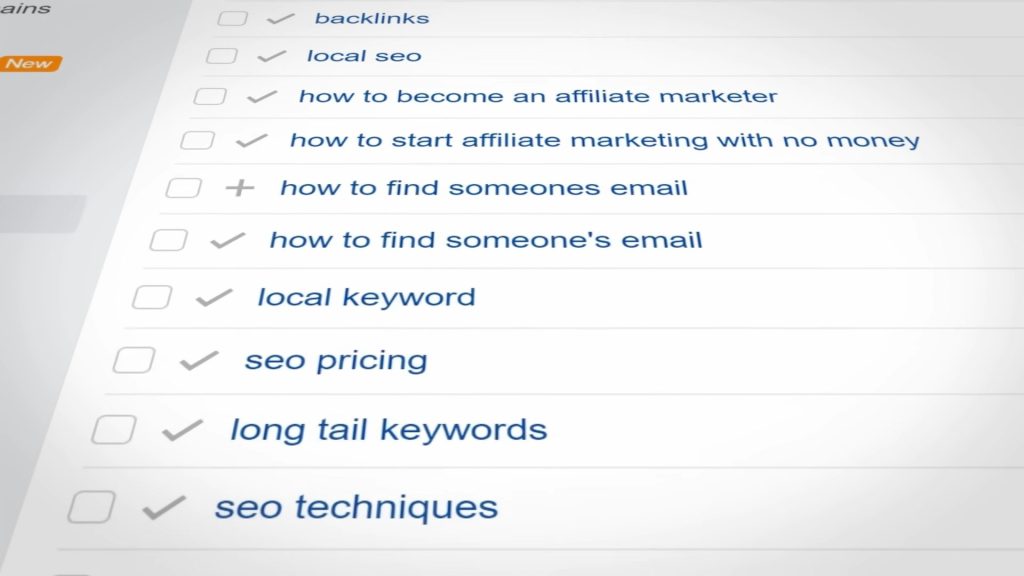
ChatGPT can help determine what those are by analyzing search volumes and trends. Just don’t expect any miraculous keyword no one else has discovered.
Stuffing Keywords Like a Thanksgiving Turkey
We’ve all seen sites that look like the webmaster went keyword-crazy. Don’t do it. ChatGPT may suggest incorporating more keywords but use common sense.
Too many keywords crammed into your content will turn off readers and get you penalized by Google. ChatGPT can’t replace human judgment when it comes to optimizing for keywords in a natural way.
Right Keywords Location
Where you place keywords matters. ChatGPT will suggest putting important keywords in strategic places like headings, URLs, meta descriptions, image alt text, and within the first 100 words. That’s solid advice, but again, don’t go overboard. Think of keyword placement as a balancing act.
Synonyms and Semantic Similarity
ChatGPT is great at finding synonyms, related terms, and phrases that are semantically similar to your target keywords. Using these in your content along with your primary keywords makes your page more relevant in Google’s eyes. Just be sure the synonyms you choose make sense for your human readers too.
In the End, You’re in Control
While ChatGPT can provide useful recommendations and assistance for keyword research and optimization, never forget that you’re in the driver’s seat. An AI can’t fully replicate the nuanced, empathetic, and strategic thinking of an experienced SEO.
Use your best judgment to determine how much of ChatGPT’s advice to implement. If something feels off, it probably is. Trust your instincts—they’re far more valuable than any AI.
Using ChatGPT 4o to Generate SEO-Friendly Content
So you want to use ChatGPT 4o to magically optimize your website and rank #1 for “make money online”? Slow your roll, buddy.
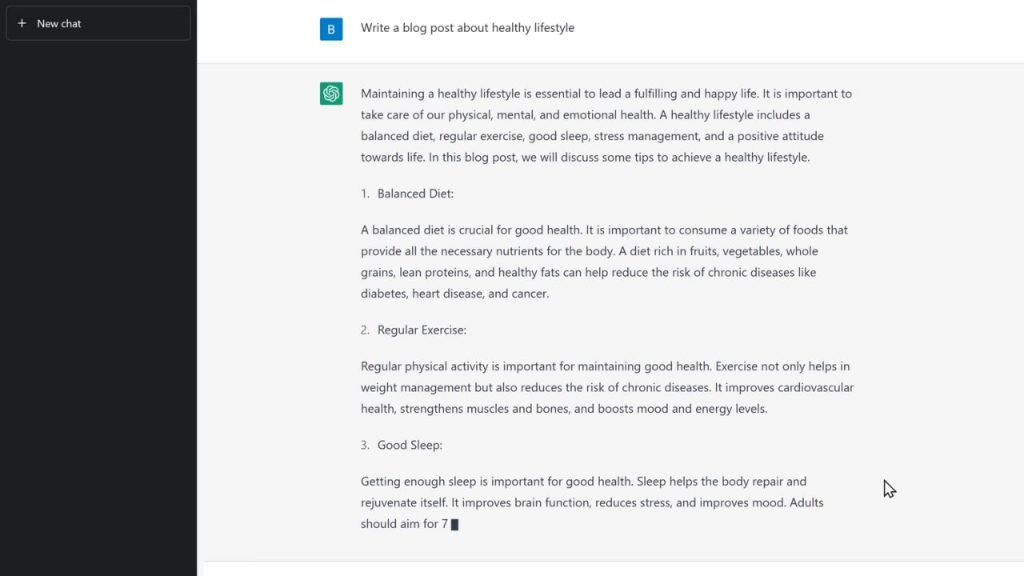
ChatGPT can spit out keyword-stuffed content faster than a toddler can spill their Cheerios, but Google’s algorithms are smarter than that. They can sniff out AI-generated spam from a mile away.
Forget keyword stuffing
ChatGPT may suggest shoehorning your target keyword into every sentence, but that’s a shortcut to getting penalized. Use keywords naturally and sparingly. Focus on providing value to your readers, not manipulating search engines.
It can’t replace strategy
ChatGPT is a tool, not a solution. It can generate content and uncover keywords, but it can’t develop an intelligent SEO strategy tailored to your business. That takes human insight, experience, and expertise. Relying solely on ChatGPT is like navigating a road trip using only your GPS—you’ll get directions, but miss the journey.
Creativity counts
ChatGPT can churn out grammatically sound content, but Google ranks unique, compelling content higher. If you want to outrank your competitors, you need an edge. ChatGPT won’t have a stroke of genius or make an insightful connection that surprises and delights your readers. It can’t replicate human creativity, empathy, and emotional intelligence.
You get what you give
ChatGPT reflects the data it’s trained on. If you feed it poorly-written, thin content, that’s what it will produce. Provide high-quality examples and prompts to get useful suggestions and drafts. Then refine, reorganize, and reword the content substantially yourself.
Think of ChatGPT as an intern, not an expert. Supervise its work closely. ChatGPT is a nifty tool for SEO tasks, but it shouldn’t replace developing a smart strategy, creating engaging content, and optimizing for the human readers who matter most.
Use it to ideate and draft, then rely on your own skills and judgment to craft content that will genuinely resonate. With your guidance, ChatGPT can be an asset. But left to its own devices, it’s liable to churn out spammy nonsense. So keep this AI in check and don’t expect it to magically solve your SEO woes. There’s no shortcut to ranking glory.
The Role of ChatGPT 4o in Technical SEO
So you’ve heard the hype about this AI writing bot called ChatGPT 4o and you’re wondering if it can really help optimize your website for search engines.
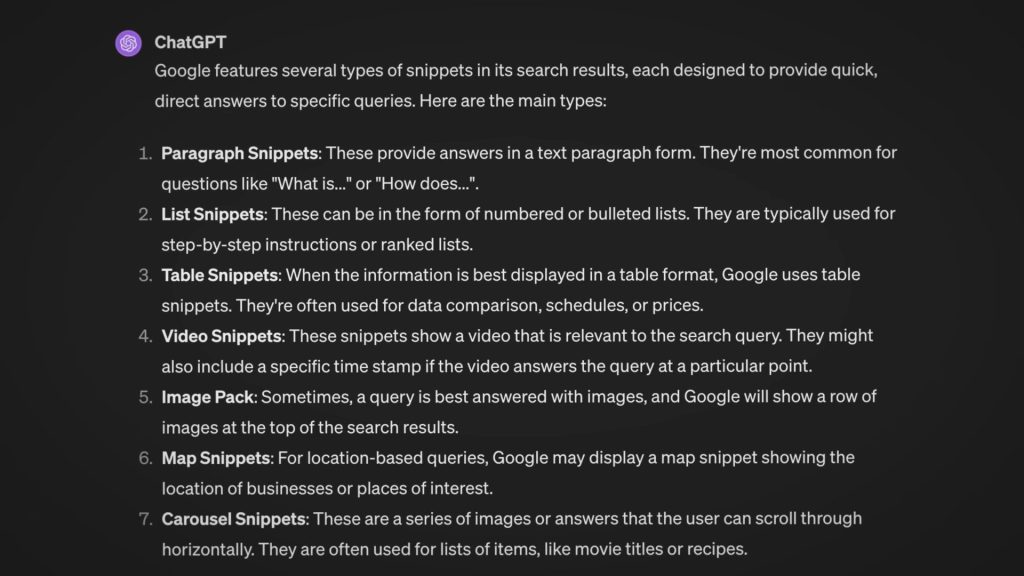
Well, the short answer is: kind of. ChatGPT 4o may be able to churn out content and handle some basic technical tasks, but it still can’t replace the human touch needed for a truly comprehensive SEO strategy.
Generating Keyword-Stuffed Nonsense
ChatGPT 4o can spit out content and page descriptions till the cows come home, but that doesn’t mean any of it will rank or even make sense.
This AI bot is not capable of doing the in-depth research needed to craft genuinely compelling content. It may stuff a page full of keywords, but Google’s algorithms are smart enough to spot AI-generated nonsense from a mile away.
Handling Code Like a Pro (Not)
If you’re hoping ChatGPT 4o will handle all your technical SEO needs, you may want to adjust those expectations. While this AI can generate basic code and markup, it lacks the nuanced, strategic thinking required for technical SEO mastery.
ChatGPT 4o won’t be able to audit your site, uncover issues, and develop customized solutions to complex problems. It can’t achieve a deep, empathetic understanding of user experience or craft pixel-perfect page designs. In technical SEO, AI is best used to assist human experts, not replace them.
The Limitations of ChatGPT 4o
At the end of the day, ChatGPT 4o is just an AI bot with narrow capabilities. It can help generate ideas, refine some of the repetitive parts of content creation and technical SEO, and take basic tasks off your plate.
But it lacks the creativity, emotional intelligence, and holistic thinking required to drive real results on its own. For now, at least, there’s no replacement for human strategic planning and expertise in SEO. ChatGPT 4o may be your friend but don’t make it your boss.
So use ChatGPT 4o as a tool, but not a solution. Let it support and enhance your SEO efforts, but don’t expect it to singlehandedly optimize your site or shape your strategy. The role of AI in SEO is still limited, while the human role remains indispensable. ChatGPT 4o can assist, but you’re still going to have to do the heavy lifting yourself.
Improving Your Writing Style With ChatGPT 4o
So you’ve decided to put that fancy new AI, ChatGPT, to work on improving your writing style. Look at you, all ambitious and forward-thinking.
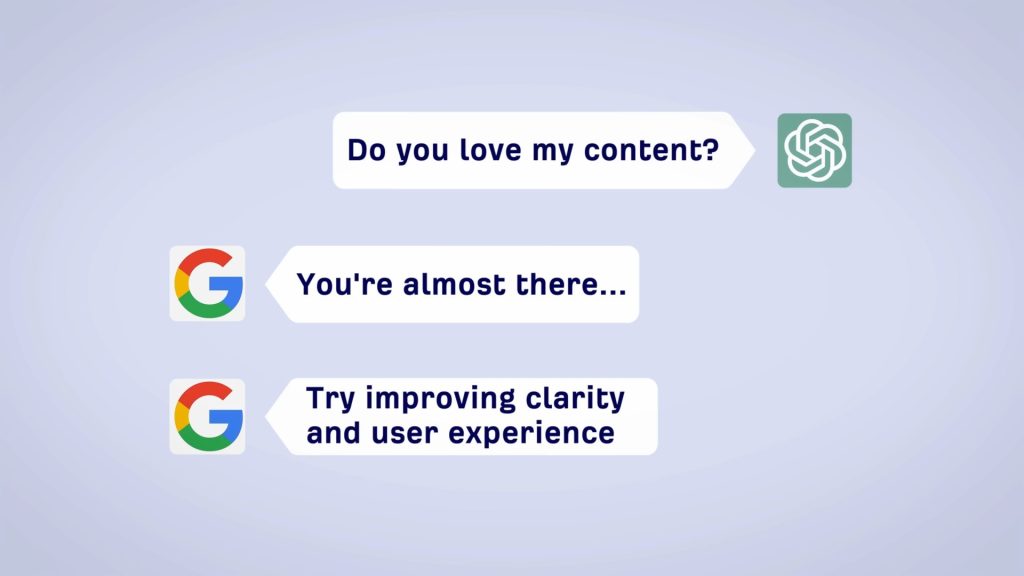
But before you gleefully toss your thesaurus and Strunk & White style guide in the bin, let’s get real about what this AI can and can’t do for your writing.
Read More : 8 Easy Steps to Start an Influencer Marketing Agency in 2024
It can’t replace hard work and experience.
ChatGPT didn’t spend years studying the craft of writing or honing its skills through practice. It has access to a broad range of examples, but it lacks the depth of knowledge that comes from focused study and application.
While ChatGPT can suggest ways to improve flow or catch embarrassing spelling errors, it can’t miraculously transform mediocre writing into a masterpiece. You still need to do the work.
It won’t necessarily make you sound human.
ChatGPT-generated content may seem coherent at first glance but often lacks an authentic human touch. Its suggestions can come across as stiff, bland, or just plain weird. So take ChatGPT’s advice with a grain of salt and trust your instincts. Your writing will be better for it.
It can introduce bias and inaccuracies.
Because ChatGPT was trained on such a massive amount of data, it has likely absorbed some of the biases and inaccuracies contained within.
So double-check any facts or statistics ChatGPT provides, and be wary of any insensitive or inappropriate suggestions. You don’t want to unintentionally offend readers or spread misinformation.
But it can spark new ideas.
While ChatGPT isn’t a substitute for human creativity, it can help get the creative juices flowing by suggesting new ways of phrasing ideas or approaches you may not have considered.
Let ChatGPT’s ideas inspire you, then build on them using your own knowledge and judgment. With your experience and ChatGPT’s capabilities combined, you’ll be unstoppable!
So take ChatGPT’s writing advice with a healthy amount of skepticism. Use its capabilities to augment your own skills and experience, not replace them. Because while this AI can help spice up your writing and catch silly mistakes, it ultimately can’t match the human touch. Your writing will be all the better for it.
Limitations of ChatGPT 4o for SEO

So you want to unleash ChatGPT 4o on your website to rocket up the SERPs, do you? Sure, this AI can whip up keyword-stuffed content and code faster than you can say “Google penalty.” But don’t get too excited. ChatGPT has its limits, and relying on it solely for SEO could end up doing more harm than good.
It can’t replace real strategy
ChatGPT may be able to churn out reams of content, but it can’t develop an actual SEO strategy for your site. It has no concept of your business goals, target audience, or competitive landscape.
SEO requires an integrated, customized approach—not just shotgunning keywords onto a page. If you want real, sustainable results, you’ll still need to work with a knowledgeable SEO strategist.
Its content lacks heart
While ChatGPT can generate grammatically correct content on virtually any topic, its writing lacks heart, authenticity, and original thinking. It simply recombines elements from its training data, producing a kind of Frankenstein’s monster of SEO-optimized fluff.
Such soulless content may initially rank well, but readers will quickly lose interest, bouncing off your site as fast as they arrived. For the best results, have ChatGPT support human writers, not replace them.
Google can spot its tricks
ChatGPT was designed by Anthropic, PBC to generate human-like text, but Google’s algorithms are constantly advancing. Before long, Google will likely get wise to the telltale patterns in AI-generated content and code.
If your whole SEO strategy relies on ChatGPT’s tricks, you’ll be in for a rude awakening when Google starts penalizing your site or discounting that content in rankings. For long-term success, there’s no substitute for high-quality, original work.
While ChatGPT shows promise as an SEO tool, put too much faith in its abilities and you may end up with a site as soulless and lacking in substance as the content it produces. For the best results, use ChatGPT to complement a comprehensive SEO strategy, not serve as a crutch or replacement. With human guidance and judgment, this AI can be a useful aid. But on its own, its SEO “skills” just don’t cut it.
Avoiding Duplicate Content With ChatGPT 4o
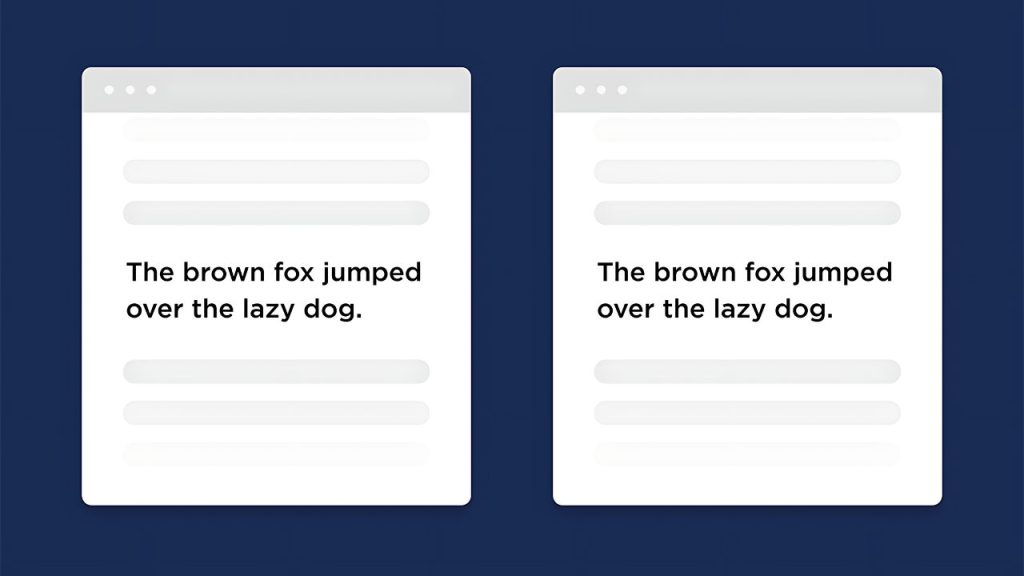
Image Credit : Backlinko
Don’t Copy and Paste!
ChatGPT may provide pre-written snippets of content at your request, but resist the urge to copy and paste them verbatim onto your site. Google’s algorithms are pretty savvy at detecting duplicate content, and if they find your site is filled with copy-pasted snippets from around the web, they’ll penalize you for it.
While ChatGPT can whip up keyword-stuffed content on demand, take the time to rephrase things in your own words. Put your own unique spin on topics and share your perspectives. After all, your readers came to your site for your expertise, not ChatGPT’s! If all you do is regurgitate what others have already said, your content won’t provide much value.
Mix It Up
Don’t rely only on ChatGPT to generate all of your content. Sprinkle in other types of content like images, videos, podcasts, or webinars. Not only will this make your content more engaging for readers, but it will also give Google more to index, which helps your rankings.
Be Original
ChatGPT is great for putting together outlines, rough drafts, and content on the fly, but it can’t replace human creativity. While ChatGPT produces coherent content, it tends to lack originality. It simply recombines information it has absorbed from across the web.
To rank well in search engines, you need to provide truly unique value. Put in the work to research topics thoroughly, share your unique experiences and perspectives, and craft content that offers actionable advice and insights your readers won’t find anywhere else. ChatGPT can support your efforts, but it can’t replace the human touch.
The bottom line? ChatGPT is a useful tool for boosting your content creation efforts, but use it as a means to an end rather than an end in itself. With a balanced content strategy that mixes AI-generated and human-created content, you’ll have a winning combination for search rankings and reader engagement.
Integrating ChatGPT 4o Into Your Overall SEO Strategy
So you’ve got your hands on ChatGPT 4o, the latest AI writing bot that promises to revolutionize your SEO. Before you let this robo-writer loose on your site, here’s how to deploy it strategically.
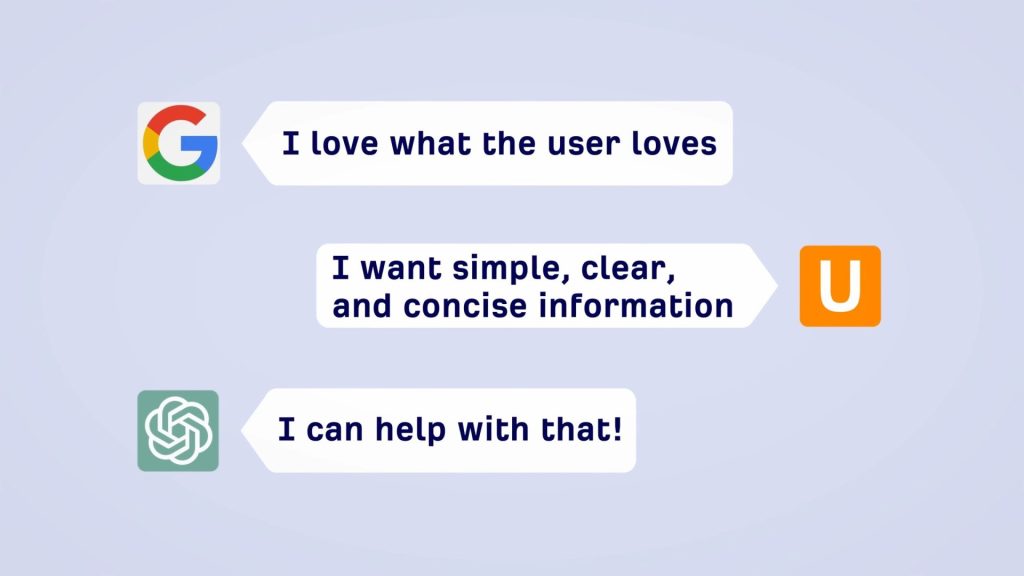
ChatGPT can help with some tedious SEO tasks, like creating keyword-stuffed content or optimizing page titles. But don’t be fooled into thinking this bot can single-handedly boost your rankings overnight.
ChatGPT may be able to churn out reams of content, but it lacks the human touch that Google really wants to see. Your readers probably don’t want to wade through pages of AI-generated nonsense either.
Rather than relying on ChatGPT to do all the heavy lifting, use it sparingly to supplement your overall SEO strategy. Have ChatGPT generate some basic outlines or first drafts, then refine and expand on them yourself.
ChatGPT can suggest keywords and phrases to sprinkle into your content, but make sure they sound natural and provide real value to readers. Don’t just stuff keywords into your content for the sake of rankings. Google’s too smart for that.
ChatGPT may be able to whip up some code to help with technical SEO issues, but again, use discretion. Double-check any changes before implementing them, as ChatGPT could introduce new issues or miss important optimizations. And don’t expect ChatGPT to audit your site architecture or fix complex technical problems.
That level of work still requires human SEO experts. The bottom line? ChatGPT 4o should only be used as a supplement to your SEO strategy, not a replacement for it.
While this AI tool can lend a helping hand with certain repetitive tasks, it lacks the strategic thinking, technical knowledge, and creative finesse that real SEO professionals provide. So keep ChatGPT in its place, and you’ll master SEO in no time.
Conclusion
Well butter my biscuits and call me Sally, looks like this here ChatGPT thingamabob might just revolutionize the SEO racket. Sure as shootin’, it can crank out keyword-stuffed content quicker than a jackrabbit on a hot tin roof.
But don’t go thinking this metal noodle will replace all the blood, sweat, and tears that go into legit search engine optimizin’. Like your grandpappy always said, there ain’t no replacement for the human touch.
So grab this AI by the horns and make it work for you, not the other way around. With the right know-how, you can get this puppy churning out content that’ll have Google begging for more. But keep a keen eye out and don’t let it get too big for its britches. At the end of the day, it’s still just a bunch of ones and zeroes.
You’re the one with the God-given creativity. Ain’t nothing can replace that. So give ChatGPT a whirl if you’re feelin’ adventurous, but don’t forget your roots. The future of SEO is still up to you, partner. Now let’s ride off into that search engine sunset. Yeehaw!
Read More : How To Use ChatGPT 4o For Business Development In 2024
 Oko Dot All In One Technology Solutions By Likhon Hussain
Oko Dot All In One Technology Solutions By Likhon Hussain
